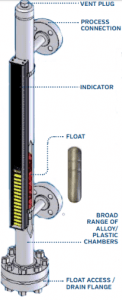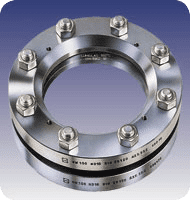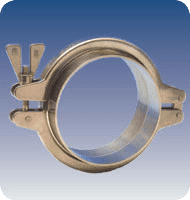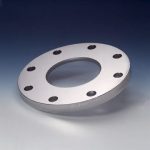Key Lighting Questions for Craft Brewing Success
Posted on May 4, 2018 by LJ StarA “Light” Recipe for Craft Brewing Success
Halogen lamps were once the standard choice for craft brewers’ vessel sight glass lighting. However, a new generation of LED luminaires is growing in popularity for this application. Consider these questions to decide whether it’s time for your brewery to invest in making the switch to LEDs.
- How hard is it to verify your vessels are thoroughly cleaned?
An improperly cleaned vessel can quickly lead to costly cross-batch contamination problems and unsellable products. LED luminaires can provide twice the light output of halogens or more, so it’s easier to confirm the effectiveness of your cleaning process.
- What are the hidden costs associated with your halogen lights?
The output of a typical halogen bulb is 15 percent light and 85 percent heat, with the heat coming from the infrared light the bulb produces, which can’t be seen by the naked eye. Unlike halogens, LED luminaires produce 55.6 lumens per watt of electricity consumed while producing little or no heat. In contrast with halogen lights, which have fragile filaments, LED lights are vibration and impact resistant, offering dramatically longer lifetimes for lower maintenance costs and fewer process interruptions.
- What color do you think your beer is?
The yellowish light that halogens produce can be problematic if you need to check the beer’s color to make process adjustments at various points. Their 2800K color temperature also approximates dusk and can cause eye fatigue. LED luminaires typically produce a white light with a cool color temperature that is optimal for illuminating stainless steel vessels.

Compare the perceived color produced by halogen lights (left) with the more true to life color when LED luminaires (right) are used.
- Are your halogen lights a pain to keep clean?
Halogen bulbs are installed in a wide range of fixtures, which may or may not be optimized for food and beverage production, complicating the cleaning process. In contrast, some of the latest LED luminaire designs have a wash-down-safe, crevice-free design that is dust and waterjet tight and are constructed of food-grade stainless steel.
- Does controlling your sight glass lighting require climbing a ladder?
Switching halogen lights on or off often requires climbing to the top of the vessel to access a manual switch on the light itself, raising the risk of injuries. A growing range of LED luminaires support remote control over a broader array of operating modes, such as momentary, short timed and long timed. A variety of factory-programmable options are also available, including timer duration, initial brightness, and LED on at power up.
- Do you customers prefer “greener” brewers?
LED luminaires provide optimal illumination while consuming just one-tenth of the energy of a conventional halogen light. Lowering your brewery’s carbon footprint by switching to LED luminaires helps reinforce the message that you’re serious about your operation’s impact on the environment.
# # #
For more details on LED-based sight glass lighting options for craft brewing, download L.J. Star’s free informative white paper (pdf): Crafted for Success: Six Vital Questions for Brewery Sight Glass Lighting.
Subscribe to our Blog
Categories
- Certifications
- Company
- In The News
- Industry Information
- METAGLAS® Sight Glasses
- PackExpo 2020
- Sanitary Clamps
- Sanitary Fittings
- Sight Flow Indicator Benefits
- Sight Glass Applications
- Sight Glass Construction
- Sight Glass Lighting
- Sight Glass Lights
- Sight Glass Process Vessel Camera
- Sight Glasses
- Trade Shows
- Webcast



